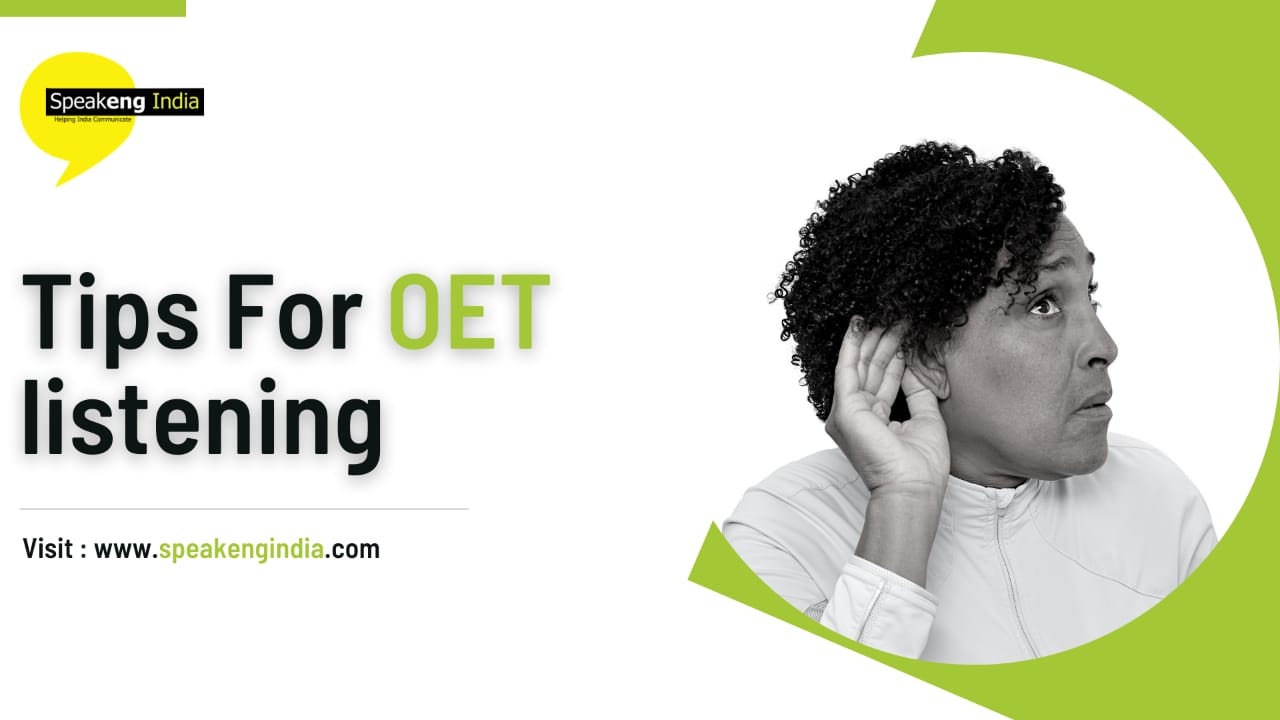OET or Occupational English Test is designed specifically to test the English proficiency of healthcare professionals who wish to practice in an English-speaking country. Knowing English at a certain level with the widely used healthcare terminology is important to understand the vital information, a slight miscommunication in which can be very critical.
Hence, Cambridge Boxhill Language Assessment Trust (CBLA) introduced this test which is a joint venture between Cambridge English and Boxhill Institute.
OET assesses four language skills with Writing and Speaking tests different for 12 different areas of healthcare while the other two i.e. Reading and Listening tests are the same across all areas.
You need to have extensive preparation for any test and OET is no different. You definitely need to have a proper study plan and understand the test structure completely as per your domain.
In this blog, we will talk about some tips to ace OET listening.
- Get familiar with different areas of healthcare:
As a doctor, nurse, or any kind of medical professional, you must be familiar with your area of expertise. However, if you are appearing for the OET exam, it is recommended that you make yourself familiar with other areas too.
- Read the questions carefully before listening to the audio.
Before each part, you are provided some time. Use this time to carefully read your questions so that you know what to gather from the audio and also what keywords to pay attention to.
- Listen out for signposting language:
When we are listening to a presentation, we need to pay attention to signposting language. Now, this is a language that indicates the beginning of a new idea or the end of an old idea and helps to organize lengthy speeches.
While listening to audio in OET, try using signposting language. Look out for words like, so, now, etc, first, second. These markers help you to mark the beginning or a change of idea. This is helpful while navigating through the questions on your question paper.
- Use the interview questions to navigate through your questions:
If your listening part is an interview, pay attention to the questions that the interviewer asks the interviewee. Most often it corresponds to the question on your question paper.
- Speak up right away if there’s a technical glitch:
If you cant hear the audio or there’s any other technical issue, it’s your responsibility to inform the team right away. Do not, under any circumstances, waste your time trying to fix things on your own.
- Listen with all your attention:
You need to put your complete focus on listening to the audio. Look out for keywords, know what you have to focus on beforehand by reading the questions. Listening to the audio and focussing n selective details are two different things and you have to master this art.
- Make yourself familiar with the medical terminology and abbreviations:
Though you might be aware of many jargons used in the medical field, owing to your profession, however, it is recommended to gain as much knowledge in this area as possible. You should also know how to use them properly. You will come across these abbreviations in your listening test.
- Listen to health-related videos and podcasts:
Listening to a variety of health-related podcasts and videos is an excellent way to improve your listening skills particularly medical-related.
Last but not the least, practice a lot. Take up mock tests or complete guidance from a renowned training center where you can get proper guidance as well as you can test your preparation level via periodic mock tests. At Spekeng India, we provide complete training for OET tests via well-researched study material, periodic mock tests, and excellent trainers who are always ready to solve your queries.




